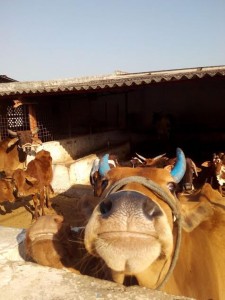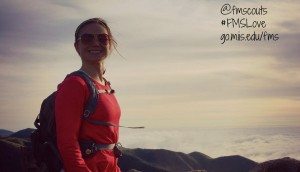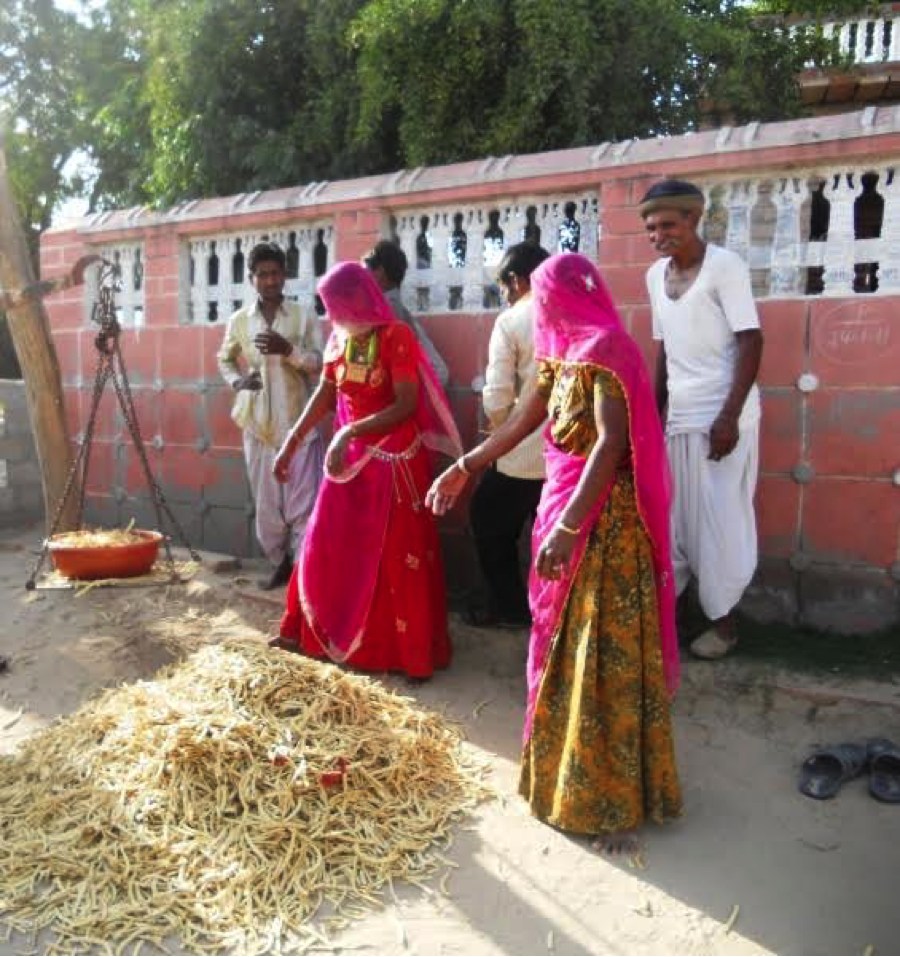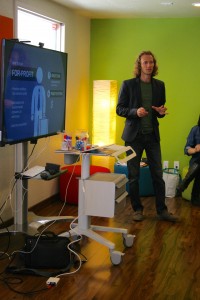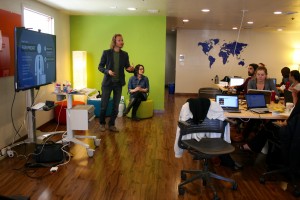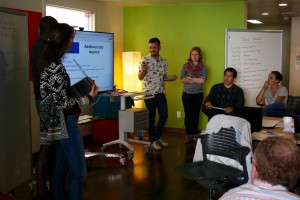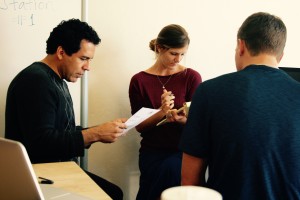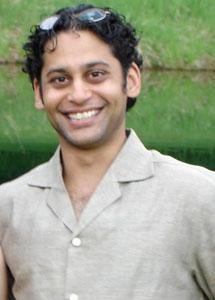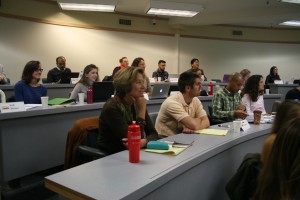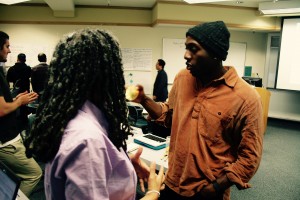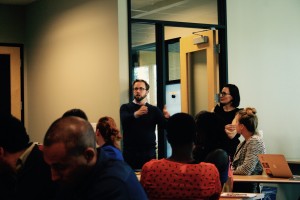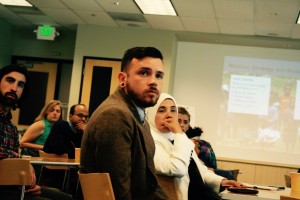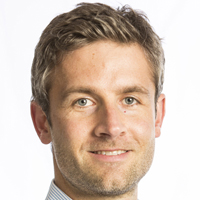We all know that social entrepreneurs are brilliant, but social entrepreneurs who bring their ideas into fruition are some of the world’s most hard-working and motivated individuals. This blog post introduces Nikhil Bohra, founder of pilot-stage social enterprise, “Cattle Mettle,” that the Frontier Market Scouts staff met at Berkeley’s Global Social Venture Competition (GSVC).
The Problem
India is the global leader in milk production, with approximately 135 million tonnes of production each year (297 billion lbs).[1] However, according to impact investing firm “Venture Dairy,” India produces this amount with entirely too many cattle.[2] In other words, productivity is low and farmers earn far less than they should. Trevor Tomkins of Venture Dairy reports that rural Indian cattle produce 3 litres of milk per day, which could be increased to 15 litres per day with adequate nutrition! Low productivity not only traps the producers in poverty, but leads to wasteful livestock management and land use.
These issues in the upstream dairy supply chain are not unique to India. However, a creative solution was born in Rajasthan. A team of social entrepreneurs has developed a solution that aims to increase productivity, increase farmer income, and improve the environmental footprint of production. Cattle Mettle is a social enterprise that uses the invasive mesquite weed to better nourish cattle, increase milk productivity, increase farmer income, and improve land management.

What was your inspiration for this venture?
NB: I was working with a local NGO, which was a part of a research project on developing different products from Mesquite, and cattle feed was one such product. Though the knowledge around Mesquite had been in public for long, there hadn’t been much research in India on its usage and no one has shown interest or taken risk to establish its supply chain for animal nutrition. Having the knowledge of communities at grassroots level, local and International Mesquite research and technical knowledge as a Biotech engineer, I felt that I was in a better position than others to start and I just did!
What has been the biggest challenge so far?
NB: Our biggest challenge has been in setting up supply chain around raw materials. These pods grow in varied regions and establishing such collection network is an exhaustive task.
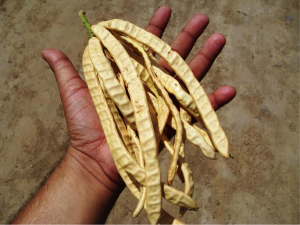
What about some rewarding moments?
NB: There have been many proud moments for us:
Once we tested our products with my milkmen, and within a week when he started seeing the benefits, he proposed to supply milk free of cost to us in lieu of cattle feed. This is exactly the model that we want to establish.
We found that villagers are happy to try out new products when it is about increasing the productivity and efficiency of their animals. Every field visit of ours brings a rewarding moment for us, especially increasing knowledge about rural ecosystem and social dynamics.
Along the way, one does find naysayers but recognition like GSVC is something very rewarding for entrepreneurs like us to keep up with our work.
What is the long-term goal for Cattle Mettle in terms of scale?
NB: We aim to supply affordable cattle feed to approximately 200,000 cattle heads every day in next 5 years benefitting 100,000 households in Rajasthan and neighboring states. At such production capacity, we would create over 6000 additional jobs in raw material collection and processing, and stop approximately 40 billion Mesquite seeds from entering into arable and urban regions. Simultaneously, we look forward to pilot in Kenya, Brazil, Argentina and Mexico and, begin commercial sales in this time frame and move a level higher to solve this global problem.
How have you been supported by the growing global network of Social Entrepreneurs and Impact Investors?
NB: Competitions like GSVC are a great platform to showcase your venture and to get valuable feedback from an international perspective. The deliverables required to participate were so exhaustive that they prepare you well with your business models and ensure that you are ready to launch your venture.
What is your message to potential investors?
NB: We are still in search for the right kind of investment partner who could add to our efforts in increasing cattle productivity in India. The investors who we have approached until now either do not have similar portfolio companies in animal nutrition and hence do not want to take the risk or are much focused on other social sectors which have greater benefits/ impact for human.
What is your advice for aspiring social entrepreneurs with an idea?
NB: Start early, fail fast and iterate till you achieve your goal.
Learn more about Cattle Mettle on their website.
About Nikhil:
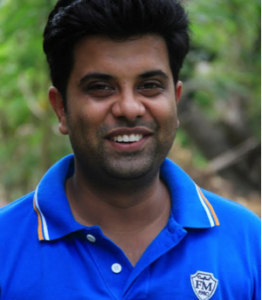
Nikhil Bohra is a postgraduate in Innovation and Leadership from ASLI and an engineer in Biotechnology from VIT University, where he founded and operated Center for Social Entrepreneurship and Development. He was recently an Innovation Fellow at Bihar Innovation Lab, funded by Bill and Melinda Gates Foundation and researched on health, nutrition and entrepreneurship.
About the Author:
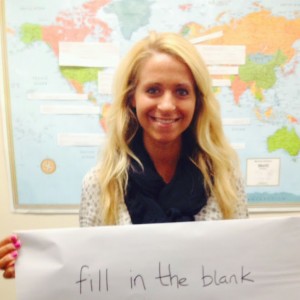
Cara Hagan is a MIIS MBA with a specialization in Sustainable Supply Chain Management. While at MIIS, she worked as a graduate assistant for CSIL and learned about social entrepreneurship working with the Frontier Market Scouts training. This summer she begins a position as production manager for an artisan jewelry company in Ecuador.
[1] “Indian Dairy Sector Set for Overhaul; to Move from Processors to Producers.” Times Of India. Economic Times, 8 July 2014. Web. 14 June 2015.
[2] “Indian Dairy Sector Set for Overhaul; to Move from Processors to Producers.” Times Of India. Economic Times, 8 July 2014. Web. 14 June 2015.
